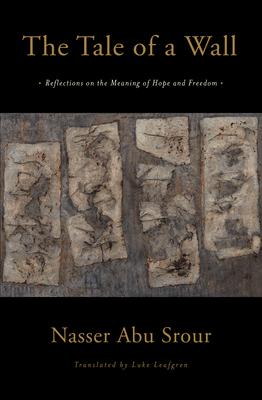
Book
The Tale of a Wall: Reflections on the Meaning of Hope and Freedom
(Write a Review)
Paperback
$19.99
"[A] kind of prose poem...that recalls the memoirs of the Palestinian poet Mahmoud Darwish"--New York Times
"Fierce and lyrical . . . a devastating testament to the power of hope, and of its loss."--Claire Messud
One of more than 5,000 Palestinians held in Israeli prisons before October 7, 2023, Nasser Abu Srour was sentenced to life without parole in 1993 after a forced confession. His extraordinary writings delve into the history of the Nakba to the Intifada of the Stones, as he navigates life within the confines of an Israeli prison. But it is within the walls of his cell that this exceptional memoir takes an unexpected direction--Abu Srour turns the very Wall that has deprived him of freedom into his companion, his interlocutor. It becomes the source of stability that allows him to endure a chaotic, hopeless existence. The limitations of this survival strategy--and singular literary device--become painfully evident when falling in love causes Abu Srour to lose his grip on the Wall. Only by writing the story of his imprisonment and the story of his love does Abu Srour find his way back. In doing so, he has created a work of art that transcends his pain while shining a glaring light on the ongoing tragedy of the Palestinian situation.
"[A] kind of prose poem...that recalls the memoirs of the Palestinian poet Mahmoud Darwish"--New York Times
"Fierce and lyrical . . . a devastating testament to the power of hope, and of its loss."--Claire Messud
One of more than 5,000 Palestinians held in Israeli prisons before October 7, 2023, Nasser Abu Srour was sentenced to life without parole in 1993 after a forced confession. His extraordinary writings delve into the history of the Nakba to the Intifada of the Stones, as he navigates life within the confines of an Israeli prison. But it is within the walls of his cell that this exceptional memoir takes an unexpected direction--Abu Srour turns the very Wall that has deprived him of freedom into his companion, his interlocutor. It becomes the source of stability that allows him to endure a chaotic, hopeless existence. The limitations of this survival strategy--and singular literary device--become painfully evident when falling in love causes Abu Srour to lose his grip on the Wall. Only by writing the story of his imprisonment and the story of his love does Abu Srour find his way back. In doing so, he has created a work of art that transcends his pain while shining a glaring light on the ongoing tragedy of the Palestinian situation.
Paperback
$19.99